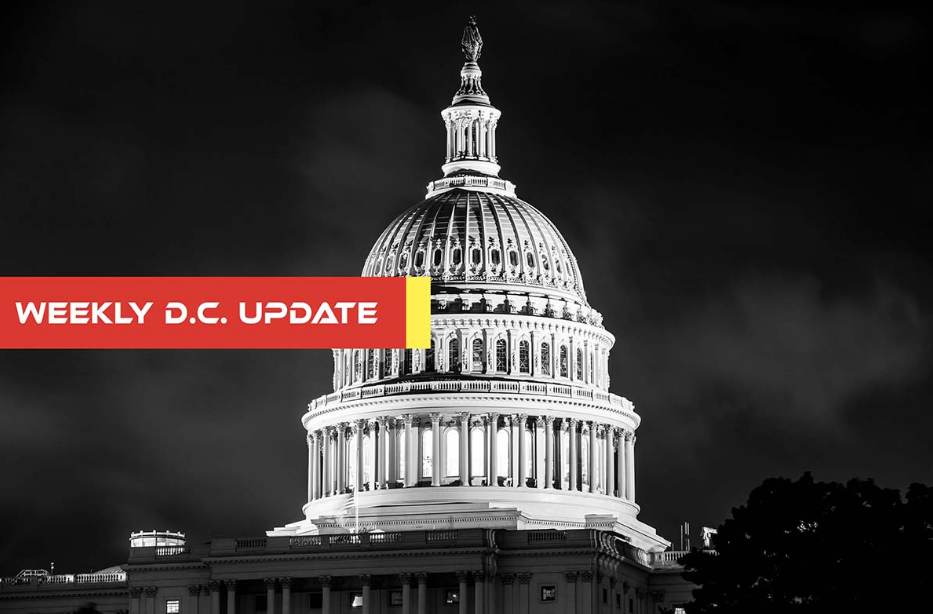
WASHINGTON — In addition to articles already covered by Native News Online, here is a roundup of other news released from Washington, D.C. that impacts Indian Country recently.
HHS Takes Action on the Not Invisible Act Commission’s Findings and Recommendations
The U.S. Department of Health and Human Services (HHS) is committed to protecting the public safety and well-being of American Indian, Alaska Native, Native Hawaiian, and Pacific Islander people and communities by addressing the recommendations of the Not Invisible Act Commission. The Not Invisible Act Commission is a cross-jurisdictional advisory committee composed of law enforcement, Tribal leaders, federal partners, service providers, family members of missing and murdered individuals, and survivors. The Commission developed recommendations to address public safety challenges identified in the Act.
Today, in its response to the findings and recommendations – PDF of the Not Invisible Act Commission (NIAC), HHS reaffirms its commitment to address the ongoing crises of missing and murdered Indigenous peoples (MMIP) and human trafficking by elevating its social and health care services tied to the prevention, intervention, and healing from violence and trauma.
Advertisement
Advertisement
For additional information: HHS Takes Action on the Not Invisible Act Commission’s Findings and Recommendations | HHS.gov
Forest Service Announces New Monitoring Policy
The U.S. Department of Agriculture’s Forest Service announced a new policy for monitoring national forests and grasslands. The policy aligns monitoring, partnerships, and information-sharing efforts to help land managers monitor changes related to climate change and other stressors affecting National Forest System lands and make timely, informed, science-based decisions within staffing and budget constraints. This policy is an important step in implementing the agency’s 2012 planning rule, which requires the agency use monitoring to inform adaptive management.
Through government-to-government consultation, the new policy emphasizes the importance of integrating science and Indigenous Knowledge into efficient and transparent monitoring programs.
Advertisement
Advertisement
The Forest Service monitors national forests and grasslands to gauge progress toward forest restoration, the effects of disturbance and climate on forests — such as the increasing frequency and intensity of wildfires, drought and floods — and to help people understand how forests are changing through time.
“Our forests are constantly changing. Monitoring is one way the Forest Service understands the impact of its decisions on our forests. This includes assessing the capability of critical infrastructure to withstand a rising number of high-intensity flood events, increases in recreation visitation, shifts in wildlife habitat use and movement, and changes in water quantity and quality. This policy is a key step in ensuring there is a consistent, evidence-based framework in place to support monitoring that drives strategic thinking and efficiencies for resource management decisions,” said Deputy Chief for the National Forest System, Chris French. “As we strive to manage lands in partnership with tribes, other federal agencies, and partners, a more universal, accessible monitoring policy is critical in fostering informed collaboration.”
In support of the policy, the Forest Service is developing resources in response to common monitoring needs that use consistent and automated data analysis and reporting methods. These resources will increase overall monitoring reporting efficiencies, aid in development of biennial monitoring evaluation reports, and support informed decision-making and adaptive management across national forests and grasslands.
Navajo Nation Water Rights Settlement Act of 2024 Gets Approval from Senate Committee on Indian Affairs
U.S. Senator Brian Schatz (D-Hawai‘i), chairman of the Senate Committee on Indian Affairs, led Committee passage of the following bills at a business meeting:
Advertisement
Advertisement
More in U.S.
2025 Landscape Scale Restoration Grant Program for Tribes
The purpose of the Landscape Scale Restoration competitive grant program is to encourage collaborative, science-based restoration of priority rural forest landscapes. This program supports high impact projects that lead to measurable outcomes on the landscape, leverage public and private resources, and further priorities identified in science-based restoration strategies.
This funding opportunity is for Federally recognized Tribes, Alaska Native Corporations/Villages, and Tribal organizations as defined in 25 USC 5304
About the Author: “Native News Online is one of the most-read publications covering Indian Country and the news that matters to American Indians, Alaska Natives and other Indigenous people. Reach out to us at editor@nativenewsonline.net. “
Contact: news@nativenewsonline.net
EMEA Tribune is not involved in this news article, it is taken from our partners and or from the News Agencies. Copyright and Credit go to the News Agencies, email news@emeatribune.com Follow our WhatsApp verified Channel





